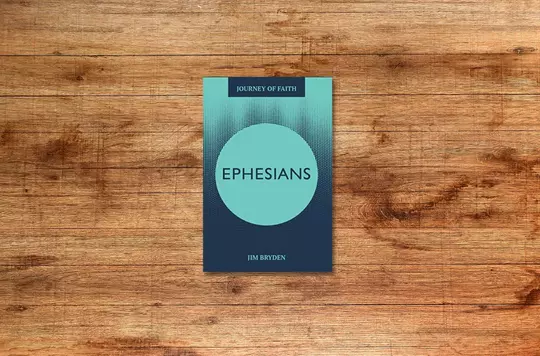3 August 2024
Together in purpose and love
Major Malcolm Martin
Major Malcolm Martin reminds us that love is the hallmark of our new life in Christ.
Key text
Alasdair MacIntyre writes in After Virtue: ‘I can only answer the question “what am I to do?” if I can answer the prior question, “Of what story or stories do I find myself a part?”’
Most New Testament letters offer guidance about how the early believers should live out their faith – usually this advice is founded on an explanation of how believers are impacted by the story of Jesus. The close link between the indicative – what God has done – and the imperative – what believers should do – emphasises the practical outworking of holiness in the life of each individual believer and in our life together.
Pause and reflect
- In The Prophetic Imagination Walter Brueggemann writes: ‘It is the task of the alternative prophetic community to present an alternative consciousness that can energise the community to fresh forms of faithfulness and vitality.’
- How might a more intentional focus on Christ help to free your imagination to grasp the true nature of a life transformed by the values of the Kingdom?
Read Colossians 3:1–4. Believers should be fully aware that they share in the story of Christ’s resurrection and that his Kingdom rule must shape every aspect of their lives. This requires an intentional response, as highlighted in The Message paraphrase: ‘So if you’re serious about living this new Resurrection life with Christ, act like it.’
As the rest of the chapter makes clear, the call is not to a distracted form of heavenly-mindedness that takes little account of the realities of daily life on Earth – Resurrection life means that we are set free to imagine the alternative of a world where we truly ‘seek first the Kingdom’ (Matthew 6:33 English Standard Version).
Read Colossians 3:5–11. Lists of vices and virtues were common in the ancient world, and appear throughout the New Testament, for example in Matthew 15:19, Galatians 5:16–26 and 2 Peter 1:5–7. The lists of sinful vices are often tailored to the particular issues being faced within each context, and it can be easy to get bogged down in microscopic analysis of what exactly is being condemned in each case.
Viewed more broadly, such lists remind believers that they should abandon ways of living that are disobedient to God, impede the gospel, or clash with the key values of God’s Kingdom. Sharing in the Resurrection story of Christ leaves no room for attitudes, words or actions that try to selfishly control, exploit or demean other people. Anything that impacts negatively on our life together must be cast aside, to ensure that the new clothes of our true selves in Christ can be clearly seen. This is sometimes likened to events in the Garden of Eden, where God replaces self-made clothes with garments of skin (see Genesis 3:21).
All are invited to share in new life with Christ: ‘From now on everyone is defined by Christ, everyone is included in Christ’ (Colossians 3:11 The Message). Background doesn’t matter, culture doesn’t matter, social status doesn’t matter – all are welcomed, included and respected, because Christ is all that matters and lives in all who believe. Where divisions based on nationality, religion, culture and status become non-existent we find Christ and the true Resurrection life that we share together.
Pause and reflect
- James Bryan Smith in Hidden in Christ comments: ‘Paul never says that our distinctive differences must be abolished, only the sense of status based on those distinctives.’
- How might we ensure that difference does not lead to division?
Read Colossians 3:12–17. New life in Christ involves ongoing, dynamic action, as we allow our lives to be shaped by our relationship with Christ. Together, we are called to develop a deep concern for the wellbeing of one another, echoing the abundant goodness of God that we experience. We are to reflect the attitude of Jesus (see Philippians 2:5–8) by approaching others with sensitive gentleness, ready to respond creatively to their needs, rather than always seeking to arrogantly assert our own rights. We are challenged to exercise steadfast patience, avoiding snap responses founded on anger – even when we find ourselves exasperated by others. Mutual respect and care should be at the heart of purposeful life together for those who are chosen, holy and deeply loved by God.
Above all, love is the hallmark of our new life in Christ (see 3:14) – whether viewed as ‘your basic, all-purpose garment’ (MSG) or as ‘the golden chain of all the virtues’ (JB Phillips). Love for God and others ensures that the other Christlike qualities we are developing do not become distorted as we seek to live together within the peaceful rule of Christ (see Mark 12:30 and 31).
As a result, our life together can be marked by thankfulness, readily expressed in our fellowship and worship together. In Colossians, thankful worship includes opening ourselves to the transforming message of what God has done in Christ, the opportunity to teach – and caution – one another, as well as singing. The distinctions between ‘psalms, hymns, and spiritual songs’ (v16) are not entirely clear, but a broad range of songs – old, new and spontaneous – can help to teach spiritual truths, both through deeply thoughtful lyrics and divinely inspired melodies.
In contemporary usage, the word ‘whatever’ can be a throwaway response, a disdainful dismissal of another perspective. In Colossians, it emphasises a whole-life approach to worship, purposefully living together in love and peace, expressing our heartful thankfulness to God for the invitation to share in the story of Jesus.
Pause and reflect
- ‘I’m free to be whatever I choose’ (‘Whatever’ by Oasis). How might your ‘whatever’ in daily living help to demonstrate love and peace in your relationships?
- What is the greatest challenge/encouragement that you find in this passage?
Bible study by

Major Malcolm Martin
Corps Officer, Thornton Heath
Discover more

Jim Bryden reminds us how Christ has smashed the walls of division between us.

Captain Alice Nunn reminds us that the joy of living in God’s love outweighs the suffering.

Commissioner Gillian Cotterill encourages us to follow the good Samaritan’s example.

Captain Naomi Clifton reminds us to take responsibility for doing what we can with the skills and abilities we have.
